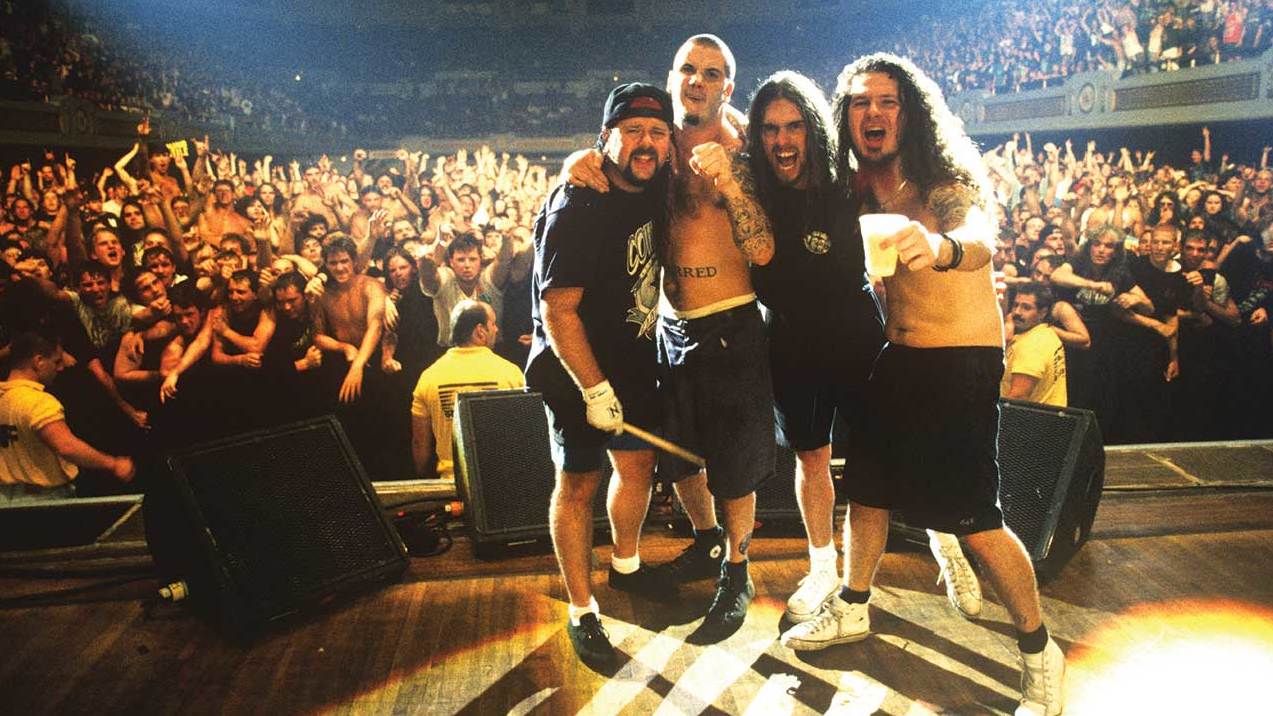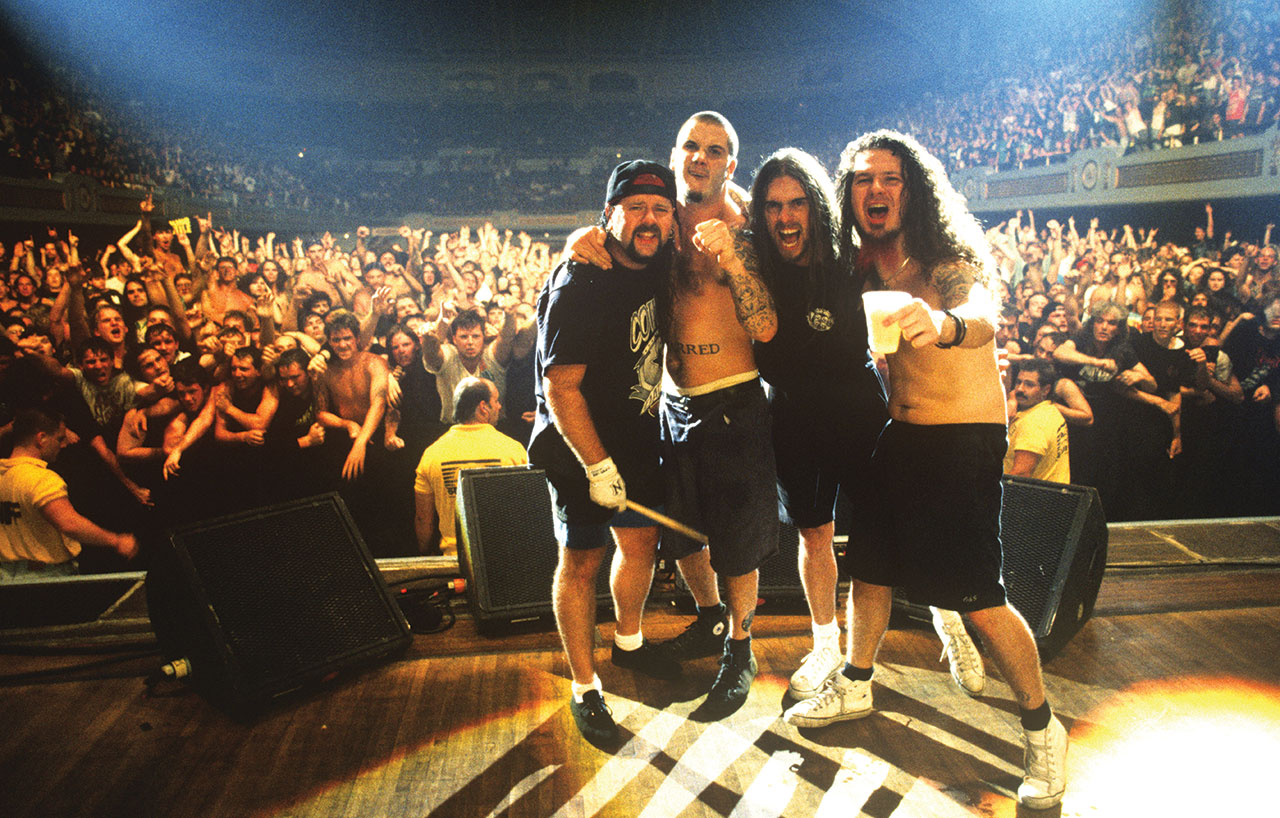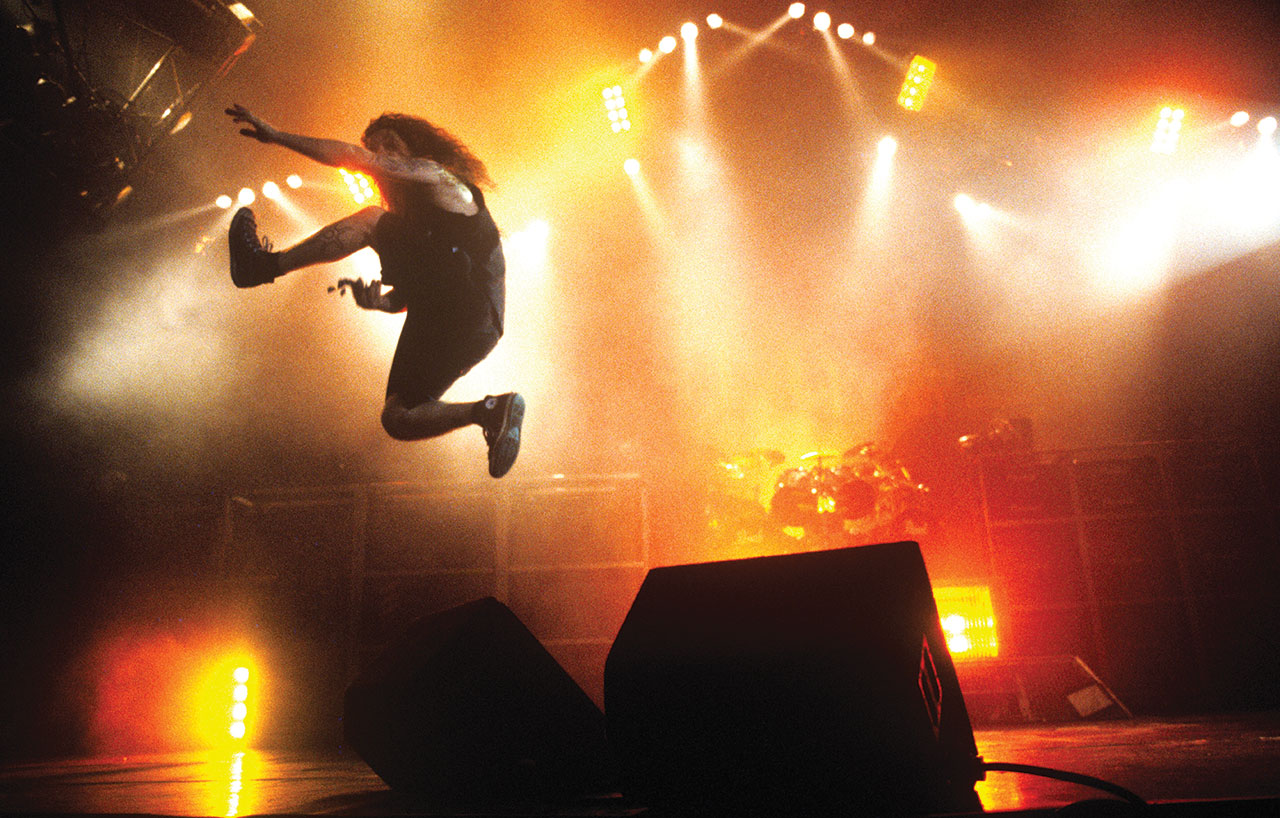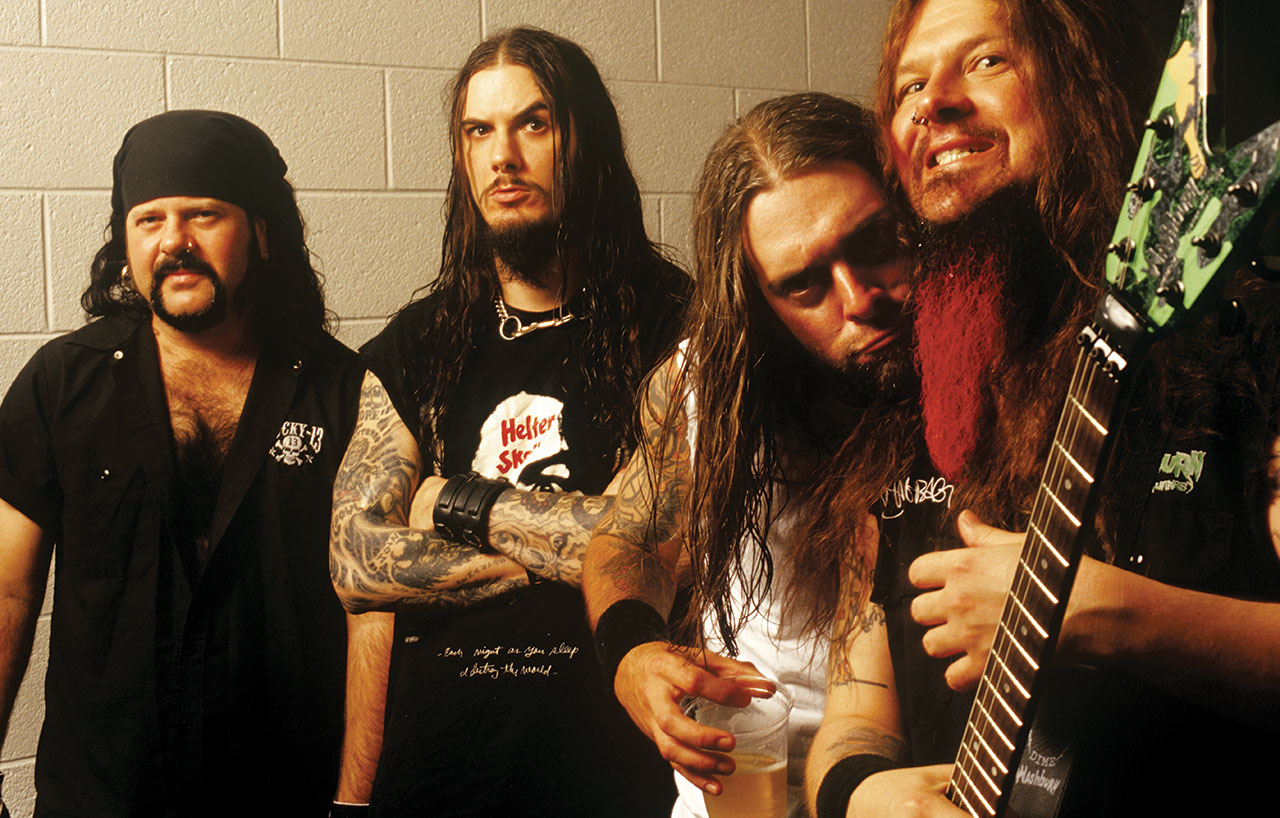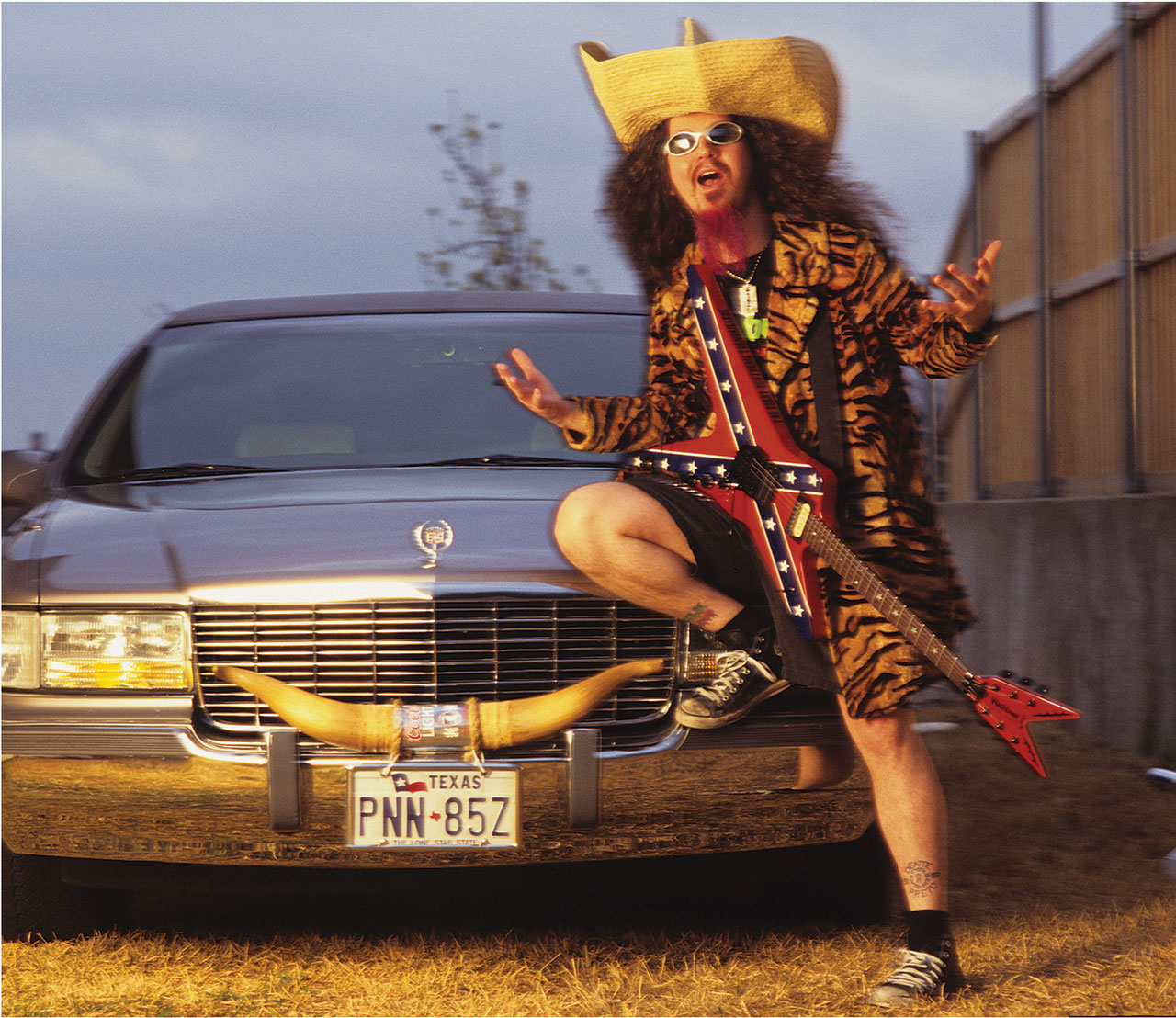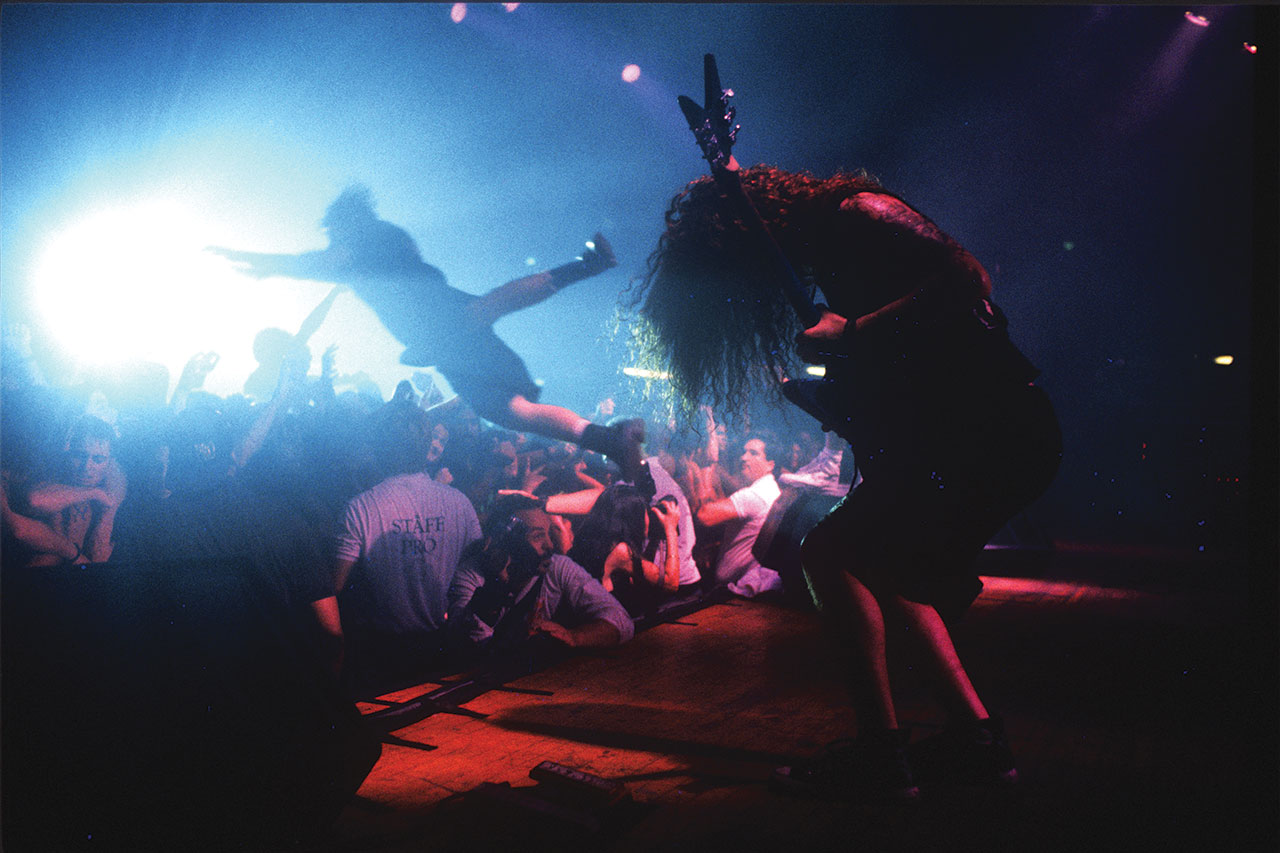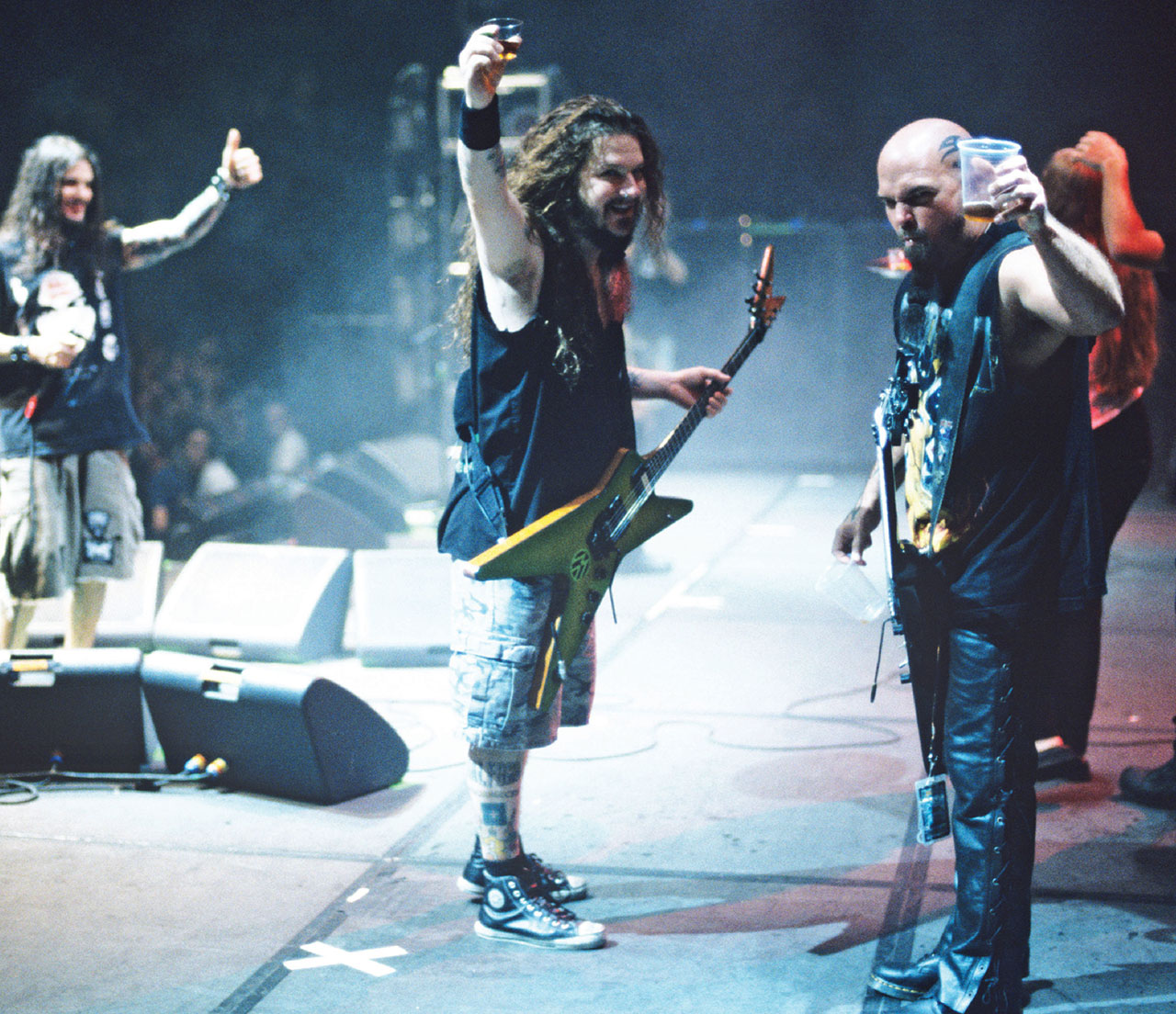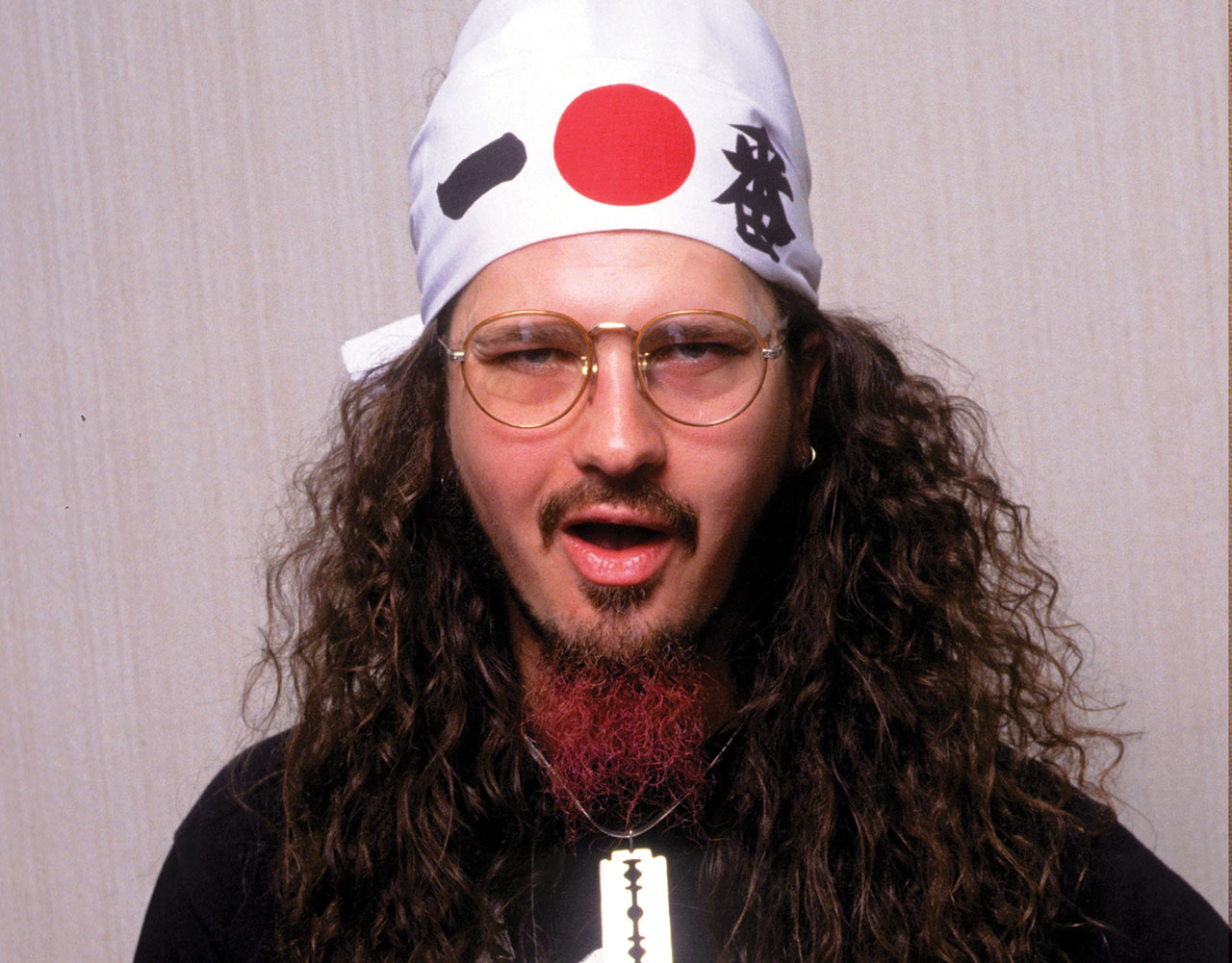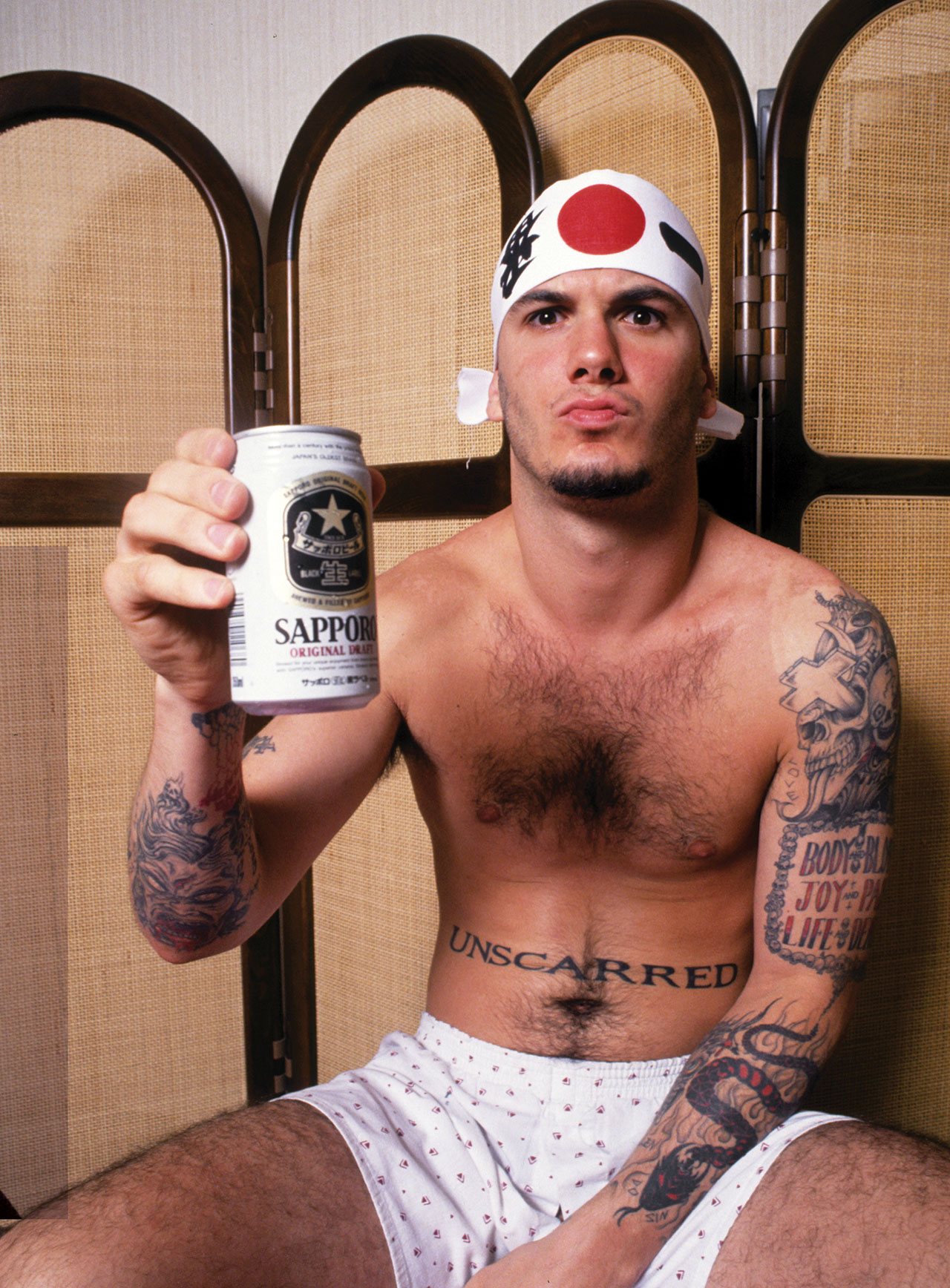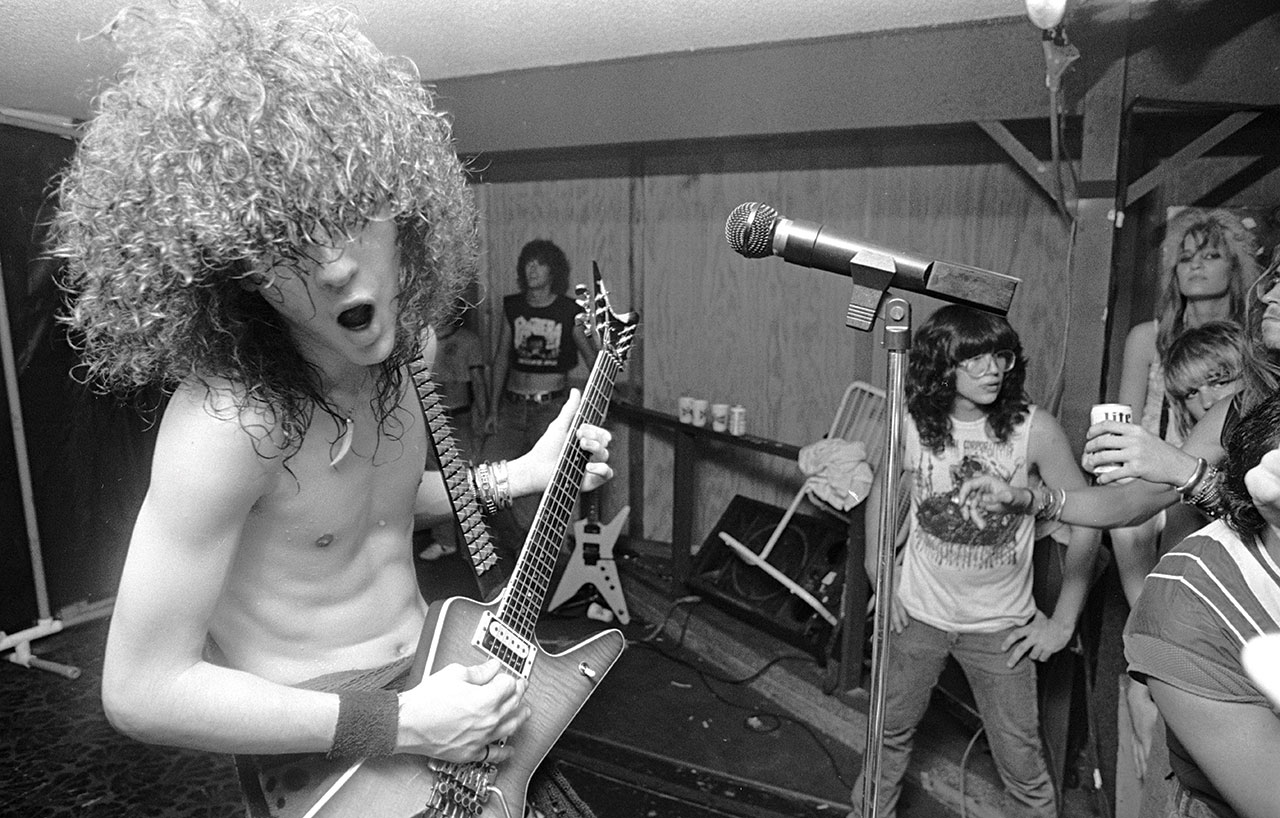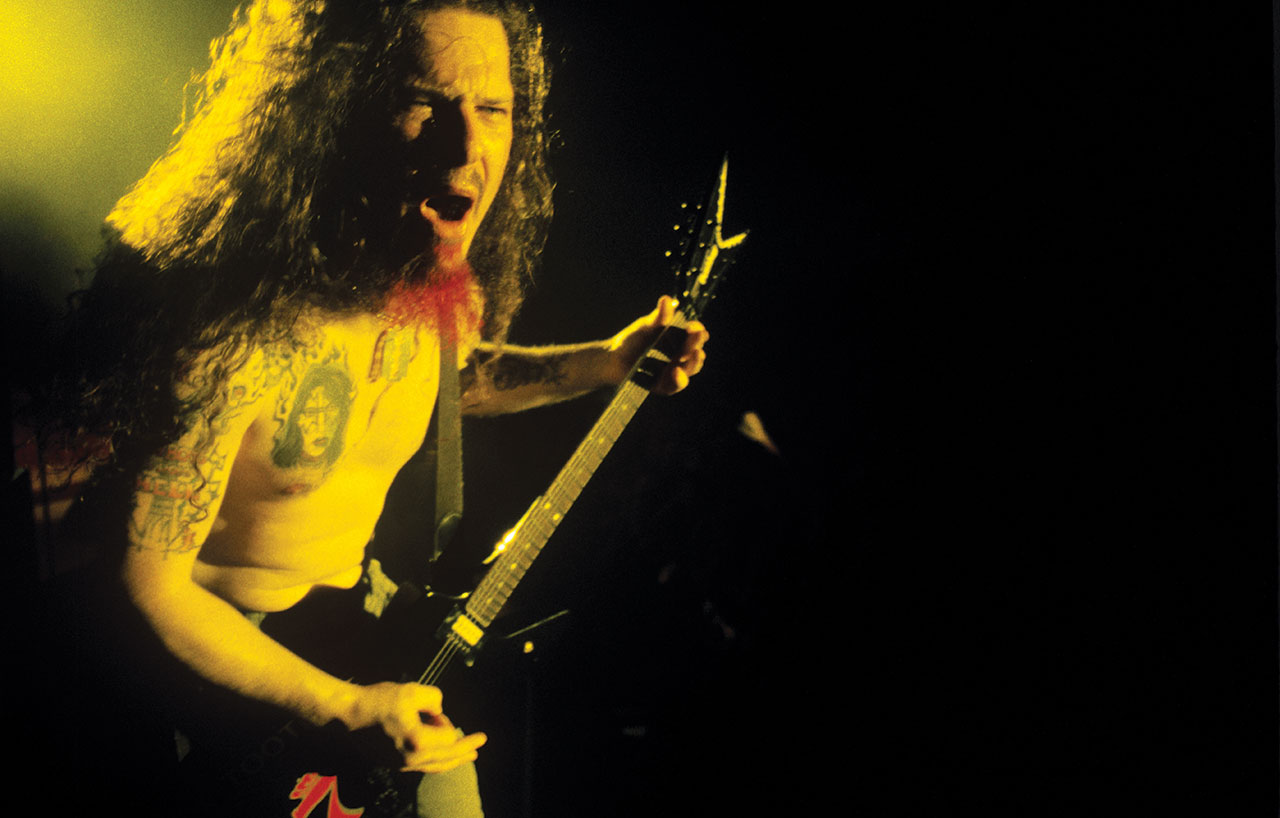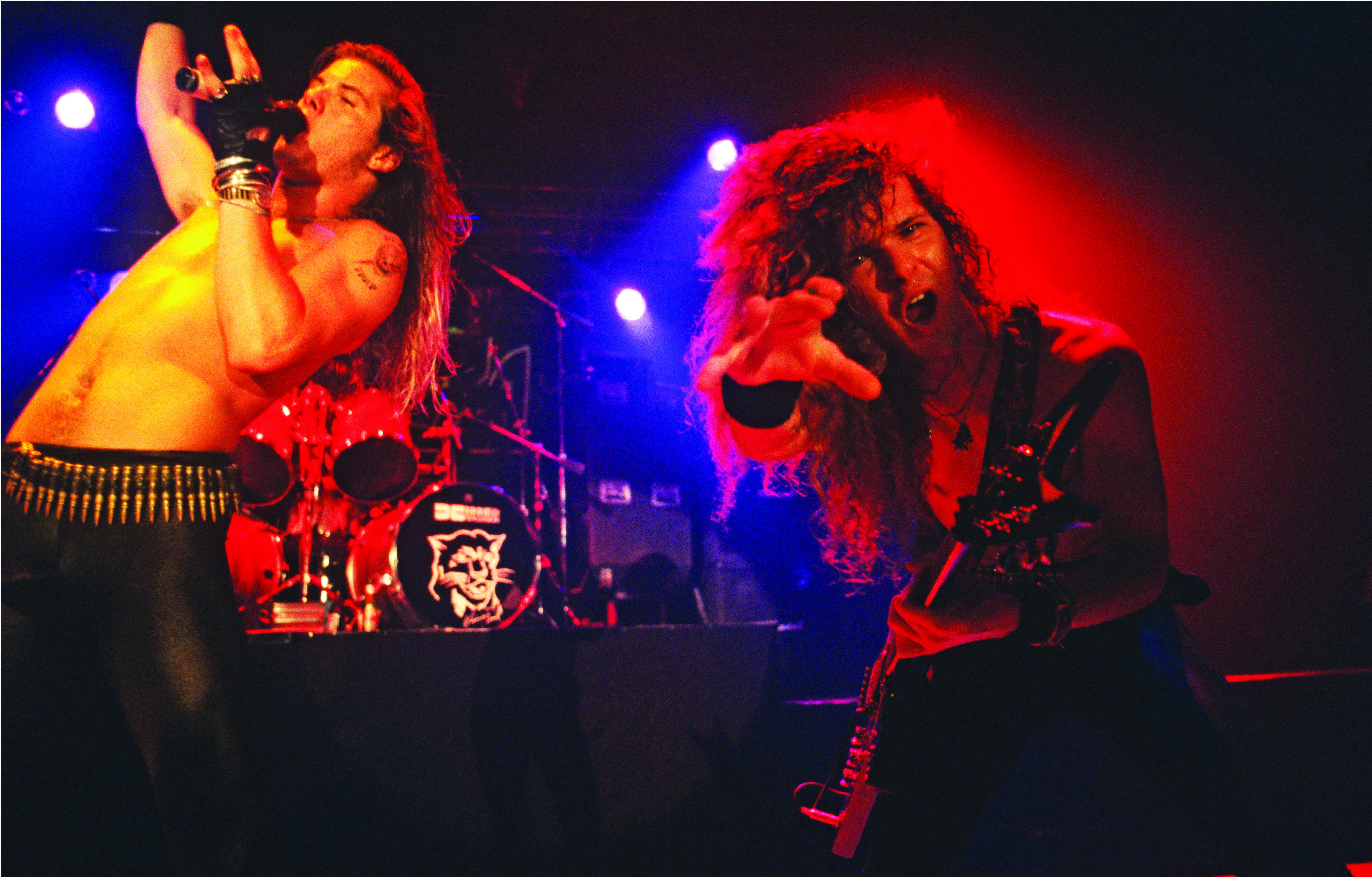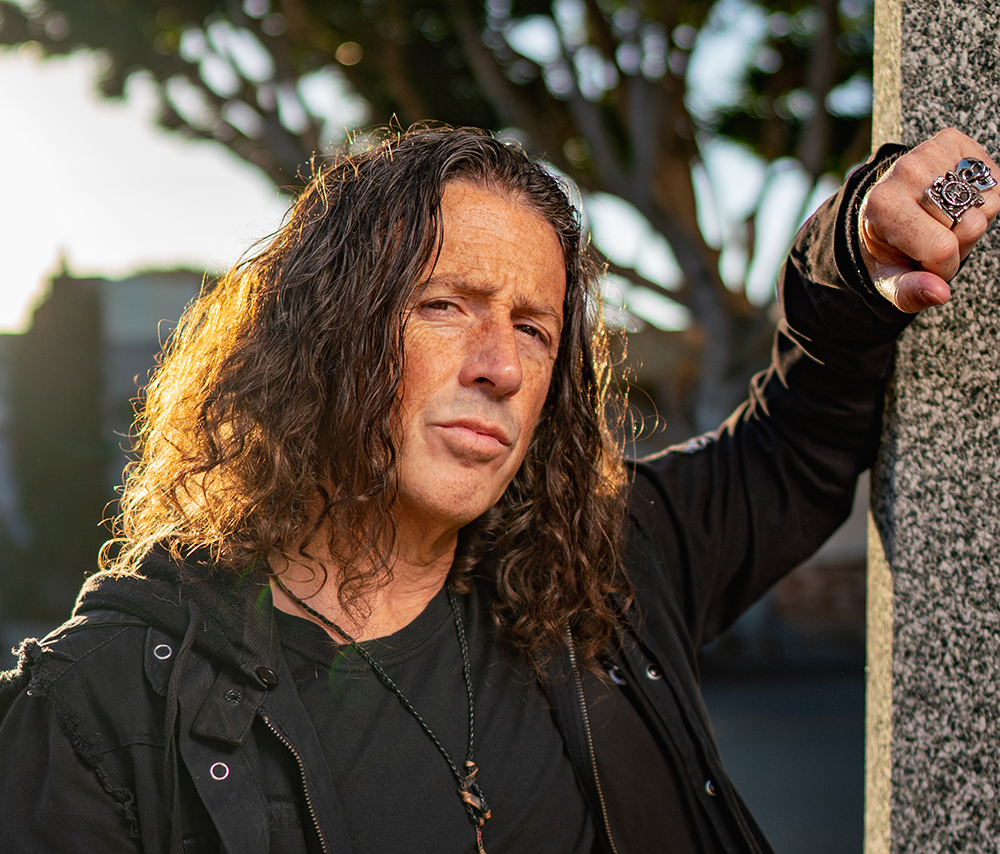At the dawn of the 90s, the prognosis for American metal was bleak. The grunge legions were pounding the ever-loving shit out of the remnants of the 80s metal scene, while even Metallica were copping flak for the Black Album, slated by many as a slab of radio-friendly jock rock.
Thankfully, Pantera were there to carry things forward, entering the fray and leading metal into the new decade with a blazing pair of groove metal epics – 1990’s Cowboys From Hell and 1992’s Vulgar Display Of Power.
Photographer Joe Giron’s new photo history of the band, A Vulgar Display Of Pantera, captures the band from their early days in Texas in the 80s through to their final shows in 2001. Bassist Rex Brown, who contributed a foreword to the book, looks back on that incredible 20 year journey.
What do you recall about the band first coming together?
Rex: The brothers had a band called Pantera and I’d known Vinnie from playing in jazz band together. I was the bass player and he played drums and his little brother Dime, when we first met, was just learning how to play barre chords. We became friends and they asked me to join the band. I had other opportunities at the time but I saw the light with these guys. Dime had just become a prodigy and we just took it from there. Some of the photos in this book chronicle from that point until we met Joe (Giron) in about ’84 or ’85. He was a really good friend as well as our photographer for twenty years.
Tell us about those first three albums, when Pantera were still in an 80s rock phase?
I remember that we were very young, playing everything from bar mitzvahs to roller rinks to starting to get our feet wet in the clubs because we were too young. I joined the band when I was 17 and Dime was 15, so it was hard for us to play the circuit and that kind of stuff. Their dad owned a studio – there were only two or three studios in Dallas, and he had one of them – basically we cut our teeth sitting on the couch there, listening to all these blues greats who came through there. During those three years, we had this other singer and we were learning our craft, and by doing all of that, it made us a much tighter band once we actually got our foot in the door with Atlantic.
When did you feel the rocket take off?
When we opened up for Skid Row. That tour opened up a lot of opportunities. They were one of the more hard-rocking bands a la Guns N Roses, [as opposed to] the bands that came out of that period of all that glam shit in L.A. Look, Heart was putting on a bunch of makeup and crap and every band did that look because they wanted to be on MTV. It was the same thing if you wanted to get out of Texas; you couldn’t play these clubs unless you looked the part, so you had to wear all these funny fucking getups and shit like that.
Did you set out to become the biggest band in the world?
No, we were just trying to keep expanding the fanbase we had. On the Cowboys From Hell tour, we went from playing every little venue from Maine to Tijuana to Vancouver to the tip of Florida and everywhere in between. We were out for about 338 days on that first tour in an RV. Then we came back and literally didn’t take us long at all to write Vulgar Display. [The mindset was], “Hey look, we can take all of these fans with us.” We set out to do that and we did. It wasn’t like we were trying to be this extremely metal phenomenon, that’s just what naturally came out. About that time, Metallica had put out the Black Album and in between that and Nirvana, it gave us a little opportunity to get in there and it was the right music at the right time. Think about how many good albums just haven’t done anything. There’s no formula; we just kept doing what we kept doing.
What are some of your favourite memories from that decade?
Dime came up with all these pranks and when somebody would be hungover or have something going on at home and Dime would always pull them out of the dirt. That’s the kind of dude he was. There would be times when Dime would stay up until noon or two o’clock, still drinking. The guy was just indestructible. He could just stay up for extreme hours at a time, then sleep for a couple hours and jump back on. Those nights that he did that kind of stuff, he’d have the most remarkable show that I’d ever hear him play. Just incredible.
What about the more difficult times?
It was a 12 year rollercoaster, man. Just like everything in life, it had its highs and lows and the lowest point was not low enough for us to even look sideways at. I’m just so glad that we’re all healthy. Philip used to jump off of fucking 12-foot risers. That was the only real problem that ensued and ’96 was the drug abuse. That’s all been said before but we got over it. We kept striving and striving and striving. Maybe we didn’t take as many breaks as we should have in between.
Was there a moment when you felt things go off the rails?
No, because regardless of what was happening, we never canceled a show. Every show we had to get up there and give our hundred percent because those kids bought those tickets. That was in the back of our minds every day. It took a lot of perseverance in that band to do what we did. Also the fans were there and we made them a part of it – we’d sign autographs until six in the morning, or as many as we possibly could. Giving back to the fans was part of the commitment.
- The 10 Worst Cover Versions Ever
- Every Song On Pantera's Vulgar Display Of Power Ranked From Worst To Best
- The 80s heavy metal compilations that changed our world
- The Strange And Terrible True Story Of Great White
You played in front of half a million people in Moscow. Was that Pantera’s best show?
There were so many highs and so many great times. I mean, Black Sabbath hadn’t played a note together for what, twenty-something years, and we were the opening band for that whole tour. Seeing them every night was remarkable. Ronnie James Dio every night! Watching Rob Halford every night in 1991, hearing him hit that high note in Victim Of Changes… there was nothing like that in the world! We were sitting right there on the side of the stage. There’s a lot to be grateful for.
We’d be remiss if we didn’t ask about the persistent reunion rumours…
Ain’t happening in the near future.
Thirteen years after breaking up, Pantera remain one of the most popular bands in metal. How does that feel to you?
This band is something that just won’t go away and we want to keep the legacy alive. In fact, when this new Great Southern Trendkill [reissue] comes out, we found a bunch of extra tracks in the outtakes of this thing and it just gives me goosebumps to hear. I’ve been blessed with all these opportunities that have been given to me and I’m grateful for everything.
A Vulgar Display Of Pantera, by Joe Giron, is out now via Lesser Gods Books
